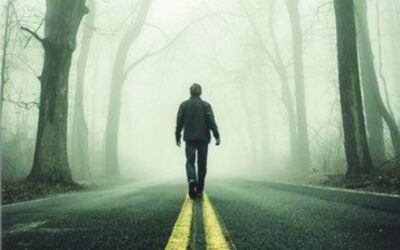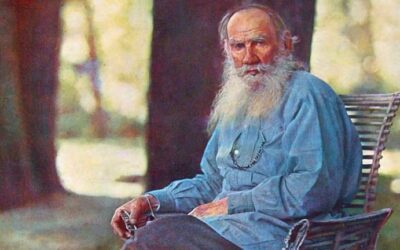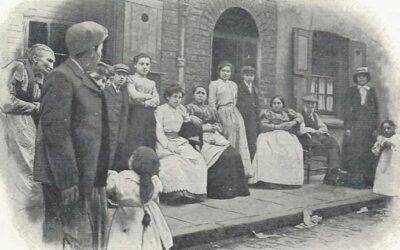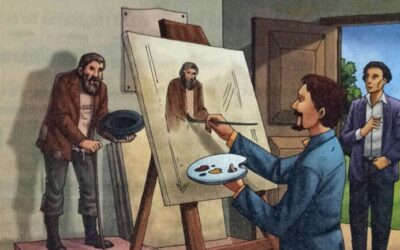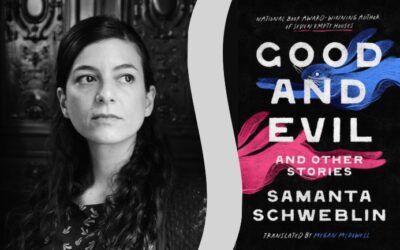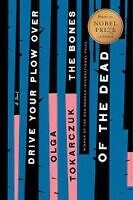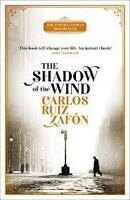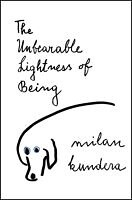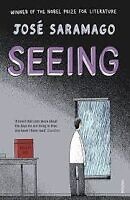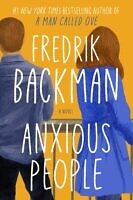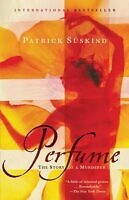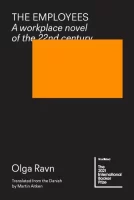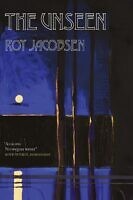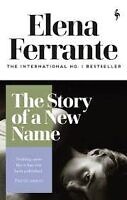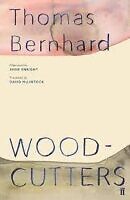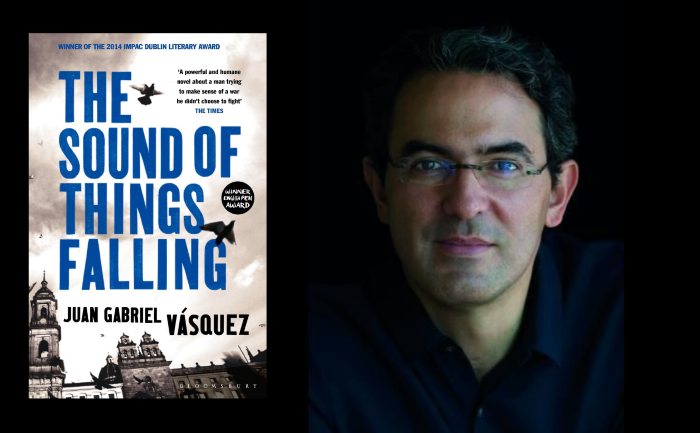10 Best Modern European Books
 Olga Tokarczuk (1)
Olga Tokarczuk (1)
We all know the classics of European Literature but there is, in modern times, many fantastic authors that perhaps don’t get the global recognition they deserve. Enjoy our selection of the 10 Best Modern European Books to read.
10 Best Modern European Books
Drive Your Plow Over the Bones of the Dead by Olga Tokarczuk (Poland)
Narrator Janina Duszejko, an English teacher and winter caretaker for a few summer houses in an isolated Polish hamlet near the Czech border, is awakened one night by her neighbor, whom she calls Oddball, who informs her that their neighbor, nicknamed Big Foot, is dead in his house. Before the police arrive, Janina and Oddball find a deer bone in Big Foot’s mouth. Soon another body turns up, and Janina, an avid creator of horoscopes and, more generally, prone to theorizing and ascribing incidents to larger systems, develops a theory that animals are killing the locals.
Tokarczuk’s novel succeeds as both a suspenseful murder mystery and a powerful and profound meditation on human existence and how a life fits into the world around it. Novels this thrilling don’t come along very often.
The Shadow of the Wind by Carlos Ruiz Zafon (Spain)
The New York Times bestseller “The Shadow of the Wind is ultimately a love letter to literature, intended for readers as passionate about storytelling as its young hero.
Barcelona, 1945: A city slowly heals in the aftermath of the Spanish Civil War, and Daniel, an antiquarian book dealer’s son who mourns the loss of his mother, finds solace in a mysterious book entitled The Shadow of the Wind, by one Julian Carax. But when he sets out to find the author’s other works, he makes a shocking discovery: someone has been systematically destroying every copy of every book Carax has written.
In fact, Daniel may have the last of Carax’s books in existence. Soon Daniel’s seemingly innocent quest opens a door into one of Barcelona’s darkest secrets–an epic story of murder, madness, and doomed love.
The Unbearable Lightness of Being by Milan Kundera (Czech Republic)
A young woman is in love with a successful surgeon; a man torn between his love for her and his womanising. His mistress, a free-spirited artist, lives her life as a series of betrayals; while her other lover stands to lose everything because of his noble qualities.
In a world where lives are shaped by irrevocable choices and fortuitous events, and everything occurs but once, existence seems to lose its substance and weight – and we feel ‘the unbearable lightness of being’.
A masterpiece by one of the world’s greatest writers, Milan Kundera’s The Unbearable Lightness of Being encompasses passion and philosophy, infidelity and ideas, the Prague Spring and modern America, political acts and private desires, comedy and tragedy – in fact, all of human existence.
Seeing by José Saramago (Portugal)
On election day in the capital, it is raining so hard that no one has bothered to come out to vote. The politicians are growing jittery. Should they reschedule the elections for another day? Around three o’clock, the rain finally stops. Promptly at four, voters rush to the polling stations, as if they had been ordered to appear. But when the ballots are counted, more than 70 percent are blank. The citizens are rebellious. A state of emergency is declared.
But are the authorities acting too precipitously? Or even blindly? The word evokes terrible memories of the plague of blindness that hit the city four years before, and of the one woman who kept her sight. Could she be behind the blank ballots? A police superintendent is put on the case.
What begins as a satire on governments and the sometimes dubious efficacy of the democratic system turns into something far more sinister.
Anxious People by Fredrik Backman (Sweden)
It’s New Year’s Eve and House Tricks estate agents are hosting an open viewing in an up-market apartment when an incompetent bank robber rushes in and politely takes everyone hostage.
For Anna-Lena and Roger, busy buying-up apartments to fill the hole in their marriage, it’s something else to talk about.
For Julia and Ro, panicky parents-to-be, it’s yet another worry.
Lonely bank manager Zara only came here for the view.
While 87-year-old grandmother Estelle seems rather pleased by the company . . .
As the police gather outside, the anxious strangers huddled within try to make the best of a very sticky situation – but could it be that they have a whole lot more in common than meets the eye?
Perfume The Story of a Murderer by Patrick Suskind (Germany)
An erotic masterpiece of twentieth century fiction – a tale of sensual obsession and bloodlust in eighteenth century Paris
In eighteenth-century France there lived a man who was one of the most gifted and abominable personages in an era that knew no lack of gifted and abominable personages. His name was Jean-Baptiste Grenouille, and if his name has been forgotten today.
It is certainly not because Grenouille fell short of those more famous blackguards when it came to arrogance, misanthropy, immorality, or, more succinctly, wickedness, but because his gifts and his sole ambition were restricted to a domain that leaves no traces in history: to the fleeting realm of scent . . .
The Employees by Olga Ravn (Denmark)
The crew of the Six-Thousand Ship consists of those who were born, and those who were made. Those who will die, and those who will not. When the ship takes on a number of strange objects from the planet New Discovery, the crew is perplexed to find itself becoming deeply attached to them, and human and humanoid employees alike start aching for the same things: warmth and intimacy. Loved ones who have passed. Shopping and child-rearing. Our shared, far-away Earth, which now only persists in memory.
Gradually, the crew members come to see their work in a new light, and each employee is compelled to ask themselves whether they can carry on as before – and what it means to be truly living.
Structured as a series of witness statements compiled by a workplace commission, Ravn’s crackling prose is as chilling as it is moving, as exhilarating as it is foreboding. Wracked by all kinds of longing, The Employees probes into what it means to be human, emotionally and ontologically, while simultaneously delivering an overdue critique of a life governed by work and the logic of productivity.
The Unseen by Roy Jacobsen (Norway)
Nobody can leave an island. An island is a cosmos in a nutshell, where the stars slumber in the grass beneath the snow. But occasionally someone tries . . .
Ingrid Barrøy is born on an island that bears her name – a holdfast for a single family, their livestock, their crops, their hopes and dreams.
Her father dreams of building a quay that will connect them to the mainland, but closer ties to the wider world come at a price. Her mother has her own dreams – more children, a smaller island, a different life – and there is one question Ingrid must never ask her.
Island life is hard, a living scratched from the dirt or trawled from the sea, so when Ingrid comes of age, she is sent to the mainland to work for one of the wealthy families on the coast.
But Norway too is waking up to a wider world, a modern world that is capricious and can be cruel. Tragedy strikes, and Ingrid must fight to protect the home she thought she had left behind.
The Story of a New Name by Elena Ferrante (Italy)
The follow-up to My Brilliant Friend, The Story of a New Name continues the epic New York Times–bestselling literary quartet that has inspired an HBO series, and returns us to the world of Lila and Elena, who grew up together in post-WWII Naples, Italy.
In The Story of a New Name, Lila has recently married and made her entrée into the family business; Elena, meanwhile, continues her studies and her exploration of the world beyond the neighborhood that she so often finds stifling. Marriage appears to have imprisoned Lila, and the pressure to excel is at times too much for Elena. Yet the two young women share a complex and evolving bond that is central to their emotional lives and a source of strength in the face of life’s challenges.
In these Neapolitan Novels, Elena Ferrante, gives us a poignant and universal story about friendship and belonging, a meditation on love and jealousy, freedom and commitment—at once a masterfully plotted page-turner and an intense, generous-hearted family saga.
Woodcutters by Thomas Bernhard ( Austria)
A searing portrayal of Vienna’s bourgeoisie, it begins with the arrival of an unnamed writer at an ‘artistic dinner’ hosted by a composer and his society wife—a couple he once admired and has come to loathe.
The guest of honor, a distinguished actor from the Burgtheater, is late. As the other guests wait impatiently, they are seen through the critical eye of the writer, who narrates a silent but frenzied tirade against these former friends, most of whom have been brought together by Joana, a woman they buried earlier that day. Reflections on Joana’s life and suicide are mixed with these denunciations until the famous actor arrives, bringing an explosive end to the evening that even the writer could not have seen coming.
If you enjoyed our selection of the Best European Books to Read, Check out our article on the wonderful Spanish Author Carlos Ruiz Zafón

